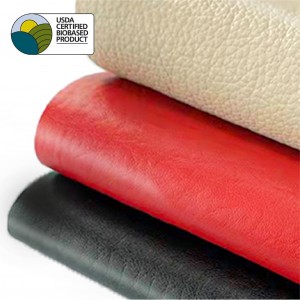The artificial leather industry has undergone a major shift from traditional synthetics to vegan leathers, as awareness of environmental protection grows and consumers desire sustainable products. This evolution reflects not only technological progress, but also society's increasing emphasis on environmental protection and animal welfare.
At the beginning of the 20th century, artificial faux leather was mainly based on polyvinyl chloride (PVC) and polyurethane (PU). Although these synthetic materials are cheap and easy to mass production, but they contain harmful substances and non-biodegradable, on the environment and human health constitute a potential threat. As time progresses, people gradually recognize the limitations of these materials and begin to seek more environmentally friendly alternatives.
Bio-based leather as a new type of material, by virtue of its renewable, biodegradable and low pollution characteristics, become the industry's new favorite. Through fermentation, extraction of plant fiber and other innovative technologies, such as the use of mushroom, pineapple leaves and apple skin and other natural materials, researchers have developed vegan leather with a texture similar to leather. Not only are these materials sustainably sourced, but the production process reduces reliance on fossil fuels and significantly lowers the carbon footprint.
Technological innovations are also driving the quality of bio-based vegan leather. Modern biotechnology, such as gene editing, allows the properties of raw materials to be engineered on demand, while the use of nanotechnology has further increased the durability and versatility of materials. Nowadays, organic vegan leather is not only used in apparel and footwear, but also expanded to home and car interiors, showing strong market potential.
The evolution from synthetic to vegan leather is a direct result of the man-made leather industry's response to the challenges of environmental protection and sustainability. Although vegan leather still faces challenges in terms of cost and popularity, its environmentally friendly characteristics and technological innovations have pointed the way for the industry, heralding a greener, more sustainable future. With the continuous progress of technology and the gradual expansion of the market, vegan leather is expected to gradually replace traditional synthetic materials and become the mainstream choice for a new generation.
Post time: Oct-28-2024















